David Lammy interview: ‘The extremes in the Labour Party have been horrendous’
The Labour MP speaks to Olivia Petter about identity politics, Comic Relief, and why he will never criticise a young woman on Twitter again

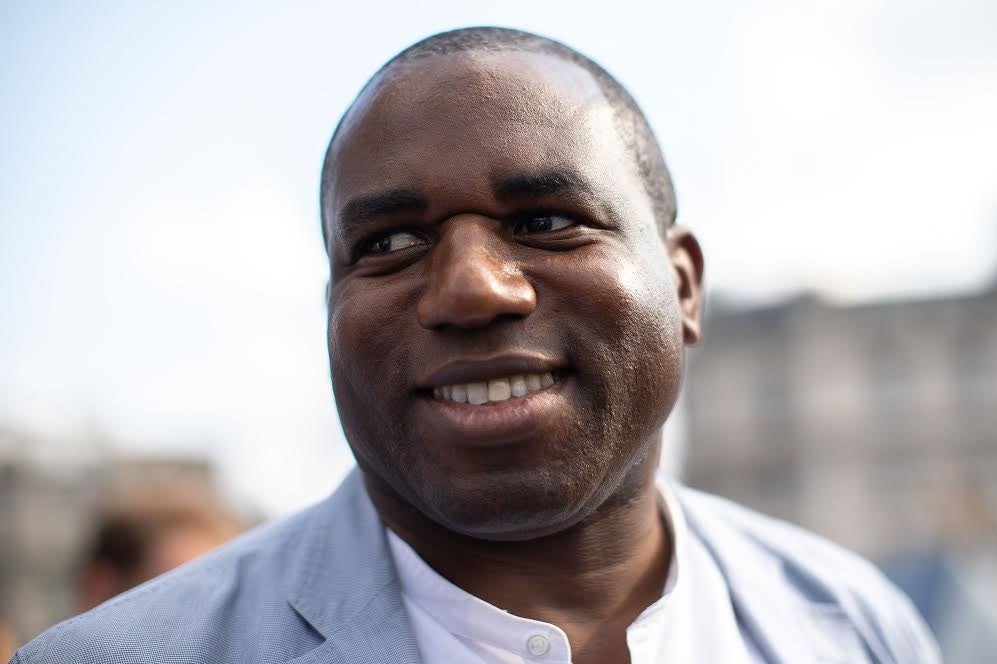
Your support helps us to tell the story
From reproductive rights to climate change to Big Tech, The Independent is on the ground when the story is developing. Whether it's investigating the financials of Elon Musk's pro-Trump PAC or producing our latest documentary, 'The A Word', which shines a light on the American women fighting for reproductive rights, we know how important it is to parse out the facts from the messaging.
At such a critical moment in US history, we need reporters on the ground. Your donation allows us to keep sending journalists to speak to both sides of the story.
The Independent is trusted by Americans across the entire political spectrum. And unlike many other quality news outlets, we choose not to lock Americans out of our reporting and analysis with paywalls. We believe quality journalism should be available to everyone, paid for by those who can afford it.
Your support makes all the difference.Barely five minutes have passed and David Lammy is already making fun of our prime minister. The Labour MP and I are discussing imposter syndrome, which we agree is something most people experience. Not Boris Johnson. “He just exudes entitlement,” Lammy says, letting out an almighty cackle. “All we hear about him as a young person is that he had a phenomenal sense of his place in the world. I can’t imagine him ever thinking, ‘Do I belong here?’ No. ‘Of course I belong here,’ he said when he arrived at Eton. ‘This place was made for me!’” But Johnson’s confidence is coveted in politics, Lammy adds. He’s stopped laughing now. “It makes people feel safe, particularly in turbulent times.”
If there’s supposedly something comforting about Johnson’s confidence, then there’s certainly something galvanising about Lammy’s. Elected in 2000 at the age of 27, the Tottenham MP is one of the most well-known figures in parliament – quite a feat, considering he has been on the backbench since 2010. Adored by his constituency – he often gets stopped on the street for selfies – Lammy has been hailed as a voice for the vulnerable, campaigning relentlessly on behalf of victims of the 2017 Grenfell Tower fire and famously eviscerating the government over its treatment of the Windrush generation in 2018. He’s an ardent Remainer, too, and has been unrelenting towards hardline Brexiteers, at one point likening them to Nazis, only to later state that the comparison “wasn’t strong enough”.
We are here today to discuss his new book, Tribes: How Our Need to Belong Can Make or Break Society, which blends memoir with shrewd analysis of the current political landscape. He interrogates subjects such as polarisation, tribalism and identity politics with aplomb, bringing in voices from opposing backgrounds and views (Bernie Sanders, footballer Eric Dier and the father of a London taxi driver all feature) to shape an understanding of how we got here.
The most powerful parts of the book, though, are the explorations of his own compulsion to belong. It opens on Lammy taking a DNA test to discover various genetic matches to tribes in Niger, Sierra Leone, and South Africa, along with traces of Scottish DNA. There is also an attachment to Guyana, where Lammy’s father’s ancestors bought their freedom as slaves, though Lammy was born and raised in Tottenham. All this explains Lammy’s own hybrid sense of identity, and perhaps why – as he writes – his response to the question “where are you from?” changes depending on how far he is from where he grew up. Today, sitting across from me at Portcullis House in Westminster, Lammy says he is from Tottenham. “Although I probably wouldn’t be an MP were it not for the seven years I spent in Peterborough,” he adds, referring to the boarding school to which he received a choral scholarship aged 11. “That definitely left an indelible mark on me.”
Going to boarding school was a major culture shock for Lammy. He found himself in the minority, not just because of his race – “I was the only black boy in a whiter-than-white world,” he writes – but because he had been raised by a single mother instead of two parents; because he said “dinner” instead of “supper”; and because he did not know what a cheese knife was.
“Suddenly I was aware of this completely different side of England,” Lammy recalls. Like at many British boarding schools, bullying was rife. So was racism. “I remember coming out of the shower after playing rugby one day and a teacher said, in front of the entirety of the changing room, ‘Have you been for a respray?’” Other times, Lammy would return from school to find Golliwogs scratched onto the inside of jam jars with “David Lammy” written underneath. “That made me feel very small,” he recalls. “But nevertheless, it was a pastoral environment, and I flourished in it.” Indeed, he was named head boy and gained a place to study law at Soas university in London, before becoming the first black Briton to attend Harvard Law School. “So it was not a ‘pity me’ story,” he says, “and I am very, very grateful to that school and to the city of Peterborough.”
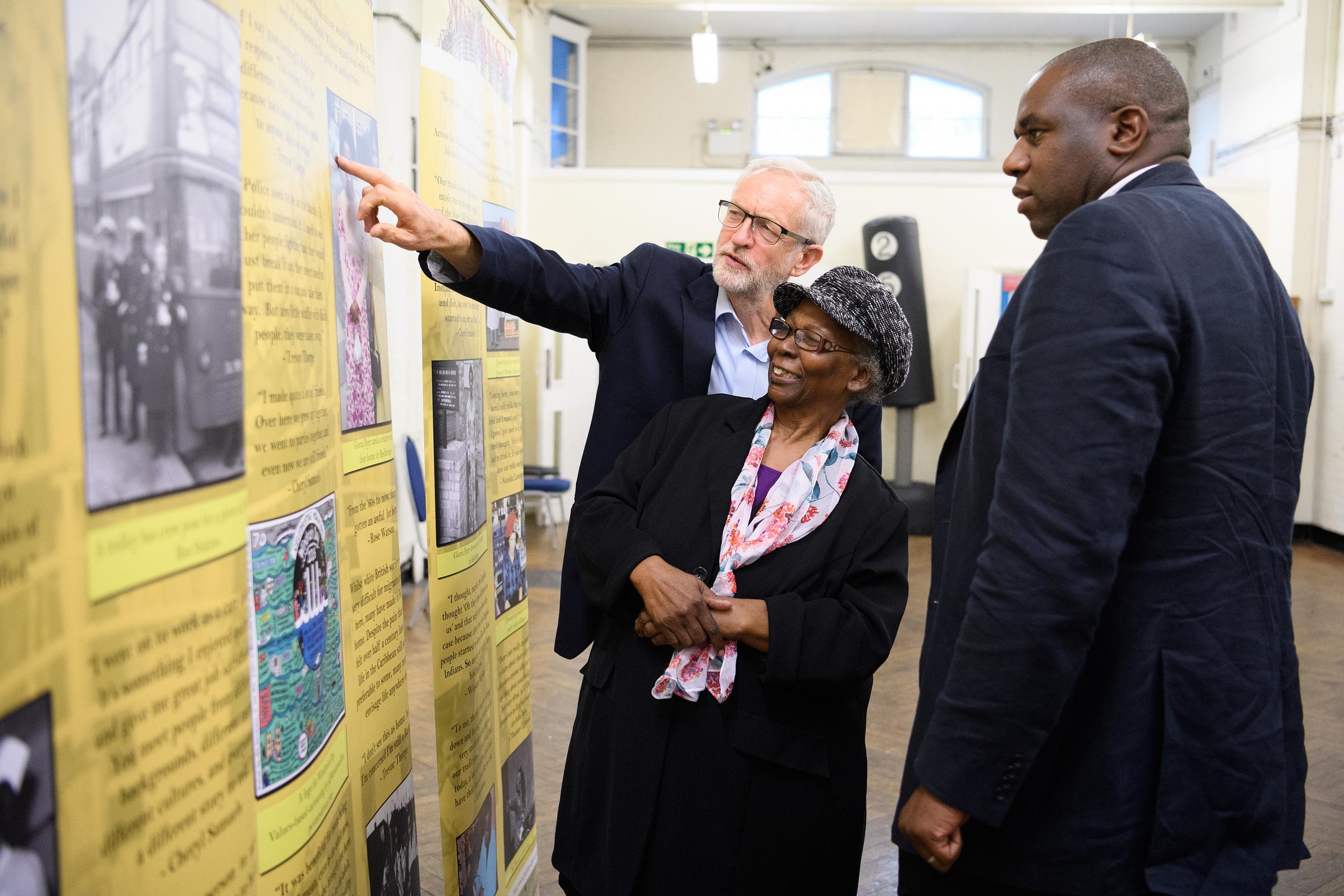
Lammy is a captivating presence. With compassionate, almond-shaped eyes and a thunderous laugh offered far too generously, the 47-year-old exudes a gentle charisma that makes you want to sink into a bottle of Merlot and share your life story – even when it’s your job to get his. As it happens, Lammy doesn’t have so much as a bottle of water in front of him, but he doesn’t flinch as our hour-long slot overruns and offers me detailed soundbites on everything from the allegations of bullying against home secretary Priti Patel, who he describes as “extremely polite”, his unlikely friendship with Tory MP Iain Duncan Smith (“We watch Spurs together”), and family life with the three children he shares with his wife of 15 years, Nicola Green. “I’m not one of those people for which politics is my sole preoccupation,” he adds, citing his love of travel, theatre and going to the cinema. “I’ve got a very full life beyond my career.”
Those 604,000 people who follow Lammy on Twitter would say he has a full life there, too, thanks to his regular takedowns of Tory MPs and governmental policies. “I’m a prolific tweeter. It allows me to respond to the news of the day or comment on something Jacob Rees-Mogg has said on behalf of my constituents.” That said, given the way the platform is designed, it is almost impossible to express views with a semblance of nuance, which is why people often make mistakes. Including him. In September 2019, Lammy criticised BBC’s political editor Laura Kuenssberg for saying, of Boris Johnson’s failed press conference in Luxembourg, that “it would have been total pandemonium if it had gone ahead” due to the noise from pro-EU protesters outside. Lammy called her an “apologist” for Johnson.
“I actually meant in that instance,” he clarifies. “But nevertheless, it was a very poor choice of words and Twitter jumped all over it. I felt really bad.” He swiftly apologised and the tweet has since been deleted. “There was a degree of vulnerability when I spoke to her. I don’t think I’m ever again going to direct my opinions at a young woman in public life… the balance of power is just not right.”
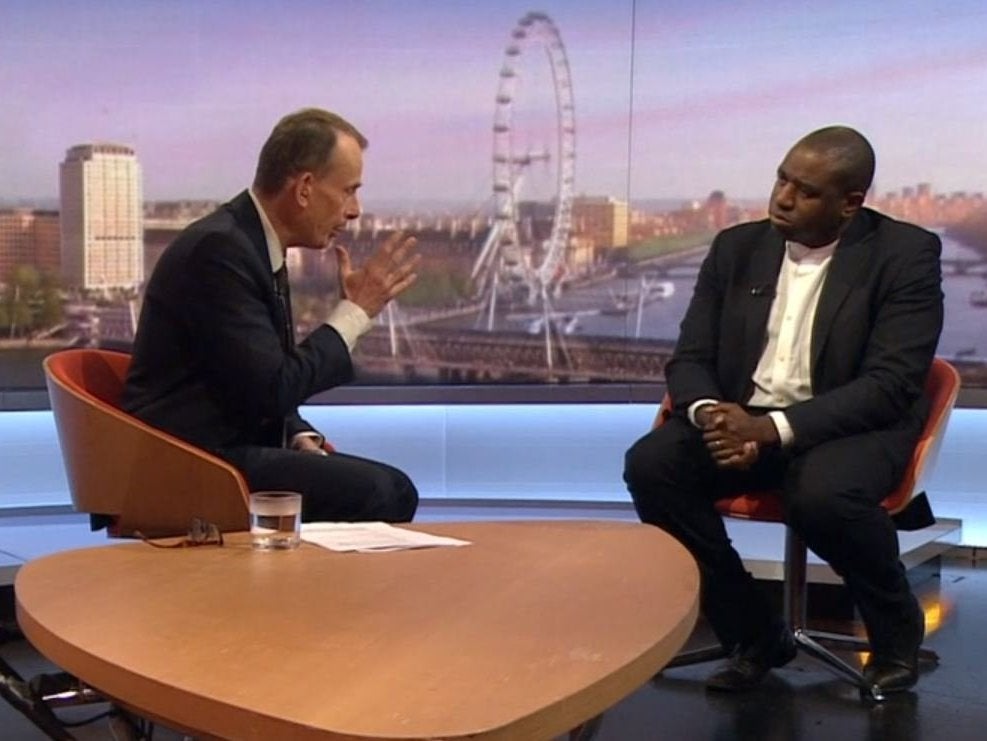
Lammy talks at length about the ways women are vilified in the media, particularly those from working-class backgrounds and women of colour. He was “saddened” when the Duke and Duchess of Sussex announced their decision to quit the royal family and believes there has definitely been a “harshness” and a “discrimination” towards Meghan because of her bi-racial heritage. But he feels it would be myopic to think there weren’t other factors at play. “I suspect the situation is complex and there probably have been some missteps by them.”
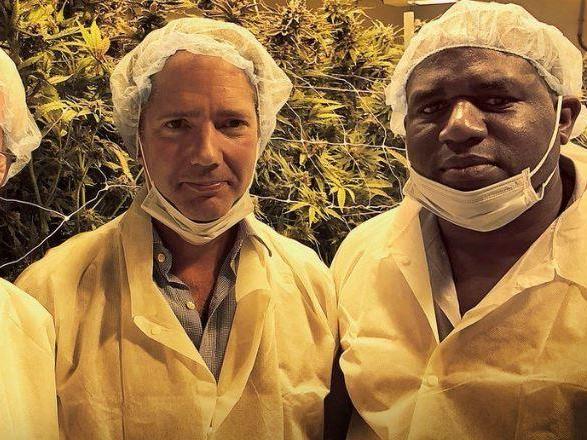
We move on to discuss one of Lammy’s biggest gripes: international aid. In 2018, he condemned Comic Relief for sending “more white saviours” to Africa and thus “perpetuating tired and unhelpful stereotypes” about African poverty – the catalyst was when Stacey Dooley shared an Instagram post of herself holding a young boy while filming for Comic Relief in Uganda alongside the caption “OBSESSED”. Despite the vitriol he received at the time, Lammy has no regrets over the tweet. “While I took a lot of abuse, you could feel the dial turn. It generated a debate and now I think we’re going to find that Comic Relief will mix it up a bit, and they’ve been forced to do that because of the debate I generated. So as much as Richard Curtis has not really been prepared to engage properly, they are responding.”
I ask why he believes Curtis, the acclaimed British filmmaker who founded Comic Relief in 1985, to be reluctant. “You’ve got to ask, if he doesn’t get it, why doesn’t he get it? You can’t be in business with international development and not understand basic issues of colonialism, postcolonialism and white privilege.” He is keen to stress that the work Comic Relief does on the ground is “fantastic” and that he takes no issue with Dooley, “but her social media posts should have been vetted”.
Throughout our conversation, whether we are discussing the tabloids or his affection for cinema, Lammy always manages to bring the conversation back to politics. So when we get onto the matter of the Labour Party, he's even more voluble. “The extremes in my own party have been horrendous,” he says with regards to the accusations of antisemitism, which he says people on the far left have wrongly conflated with anti-capitalism. Lammy has a great affinity with the Jewish people, he says, and tells me that it was “a group of wealthy Jewish lawyers” who funded his education at Harvard. What does he say to reassure Jewish Labour supporters such as myself? “I say I understand,” he says, simply. “I don’t want to say the division we’re facing politically is solely about those on the right. There are also tremendous issues of tribalism on the left.”
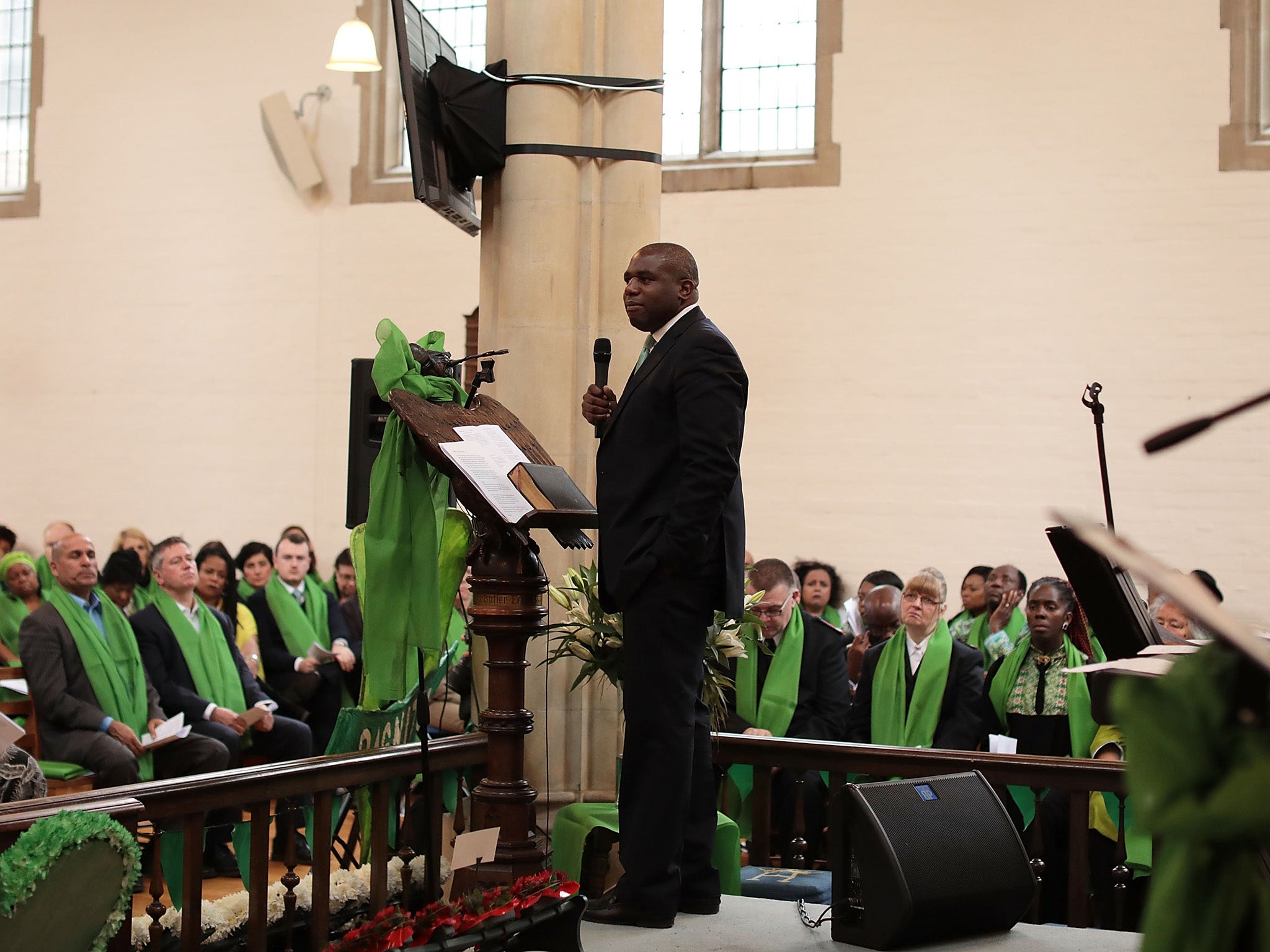
Ultimately, Lammy wants to see a return to what he calls “real politics”, which he explains is about finding common ground whatever our gender or class may be. It’s also about redressing the balance of power, which is why he starts talking about the #MeToo movement when I ask him about cultural appropriation. “We are living in times where power is being scrutinised,” he explains, adding that men in high-powered positions have long exploited their professional supremacy at the expense of women. When it comes to cultural appropriation, the dynamic is similar. “Whether it’s writing a particular book about Windrush or cooking a particular dish created by an ethnic minority, people will legitimately raise questions about the privilege someone has had in order to allow them to do that. So it’s fine for others to do these things as long as you ask: what are you doing to platform that ethnic minority writer or that person who can’t afford to work for no money at the beginning of their career?”
That said, fear of cultural appropriation should not hinder people’s imagination. “It cannot give people the opportunity to shut down the ability to walk in other’s shoes. That’s the whole bloody point, isn’t it?”
‘David Lammy’s Tribes: How Our Need to Belong Can Make Or Break Society’, published by Constable, is out now
Join our commenting forum
Join thought-provoking conversations, follow other Independent readers and see their replies
Comments